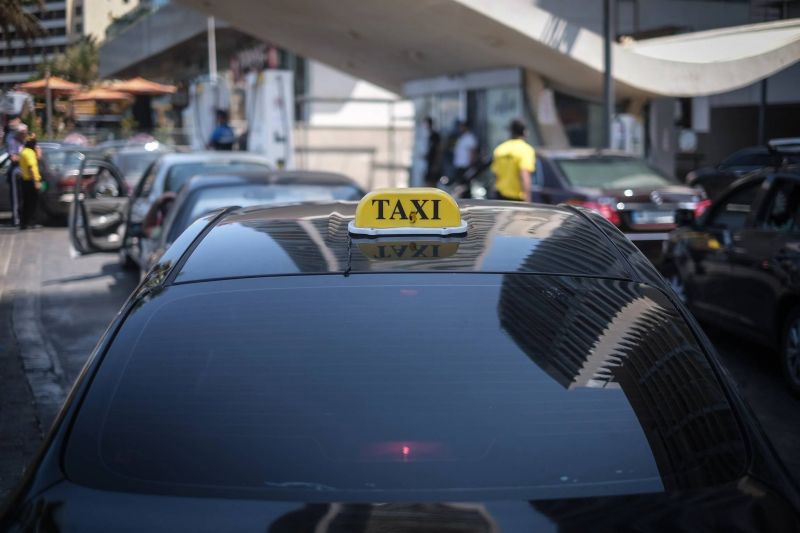
A taxi in Beirut. (Credit: João Sousa/L'Orient Today)
Want to get the Morning Brief by email? Click here to sign up.
Caretaker Interior Minister Bassam Mawlawi, in response to last week’s protest by taxi drivers, asked the Telecoms Ministry to suspend access to the Bolt rideshare app until its legality can be verified. Mawlawi requested that the suspension remain in effect until Bolt provides the documents proving it is abiding by traffic laws and other regulations. ISF members were tasked with taking the “necessary measures” against transport apps operating “illegally.” Mawlawi also asked security forces to double down on taxi drivers working without necessary authorization (i.e. using falsified public transport license plates or private license plates). Last Tuesday, taxi drivers blocked roads across Lebanon to decry “unfair competition.” They called for stricter regulation of public transport and the “immediate cessation of apps such as Bolt, Uber and others,” one owner of a cab agency told L’Orient Today. The apps are seen to be undercutting prices.
Akkar farmers announced a stop to the potato harvest to protest competition from imported or smuggled products that are undercutting local prices. Potatoes from Egypt and Syria are causing “huge losses that farmers cannot afford,” Akkar Farmers' Union head Abdel Hamid Saqr said in a statement. The same day, several farmers blocked a road linking Lebanon and Syria saying they would refuse passage to any truck loaded with potatoes. Saqr said farmers would stop the potato harvest, which occurs from April to early June each year, due to dwindling profits linked to cheap potato imports from Egypt and overland smuggling from Syria. “Today it’s them, but tomorrow it could be us,” Bekaa Farmers’ Association head Ibrahim Tarshishi said, expressing solidarity with the protesting farmers. Tarshishi claimed Egyptian potatoes were delivered to Lebanon outside a longstanding time window, scheduled to not interfere with local farmers’ harvests.
Cypriot airline TUS AIR no longer has access to Lebanese airspace or the Beirut International Airport after the discovery of an Israeli stake in the firm, the state-run National News Agency reported Friday. Civil Aviation Director Fadi al-Hassan announced the restrictions on Friday and relayed to the General Directorate of Economy and Commerce that TUS AIR is 49.9 percent owned by the Israeli corporation Knafaim Holdings, Ltd. In 1955, Lebanon passed a law boycotting contact with Israelis or economic relations with Israeli companies.
Eleven consortia on Friday engaged to provide a total of 165 megawatts of solar power for the next 25 years. Caretaker Energy Minister Walid Fayad, after signing the contracts, dubbed the agreement a “major achievement.” The consortia must now begin to procure a total of $99 million to fund the construction and operation of the solar plants, as estimated by the president of the Lebanese Center for Energy Conservation (LCEC), Pierre Khoury. “If one of the consortia finds the funds tomorrow, it can move directly to the next stage,” Khoury added, in reference to the one-year deadline for each consortium to secure funding. The power generated by the solar farms will go directly into Electricité du Liban’s (EDL) grid and be sold at the same rate as the state power supplier’s existing electricity — while costing the Energy Ministry almost a third of its current production costs. The increased prominence of renewable energy sources is part of reforms to EDL launched in February after years of deficient electricity production and growing costs.
In case you missed it, here’s our must-read story from yesterday: “A ‘Schengen area’ for the Gulf soon?”
Compiled by Abbas Mahfouz